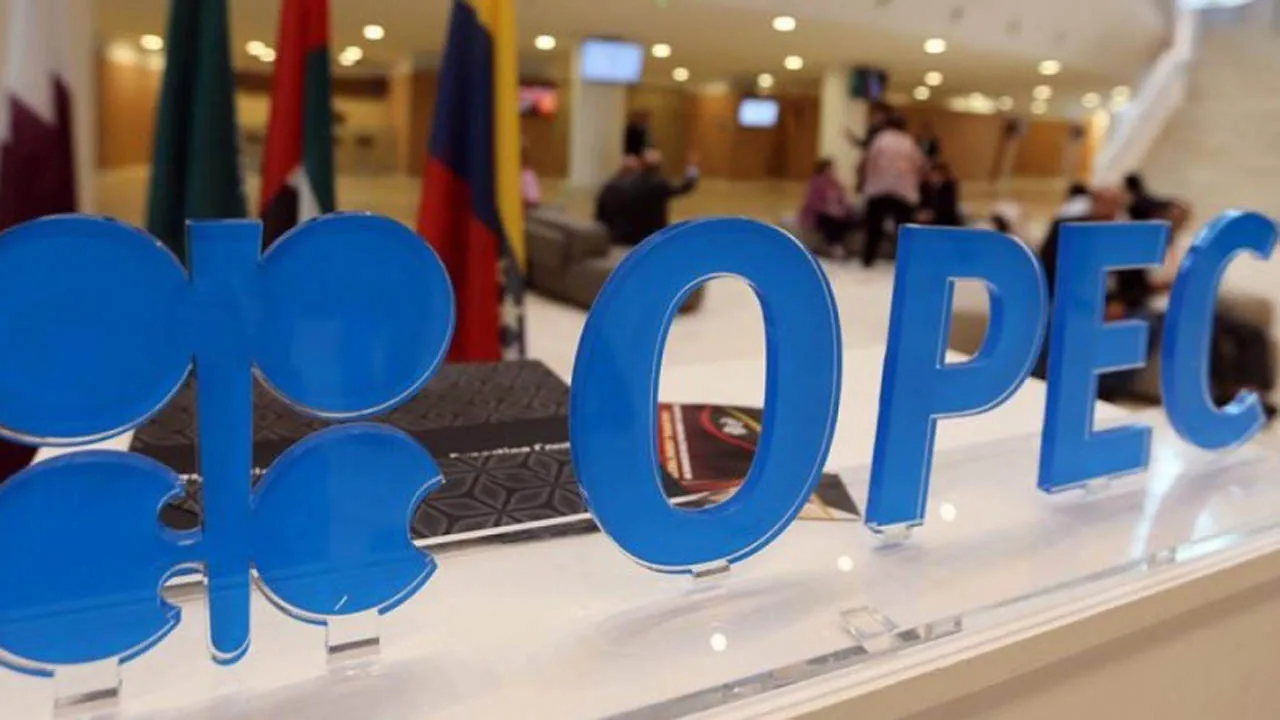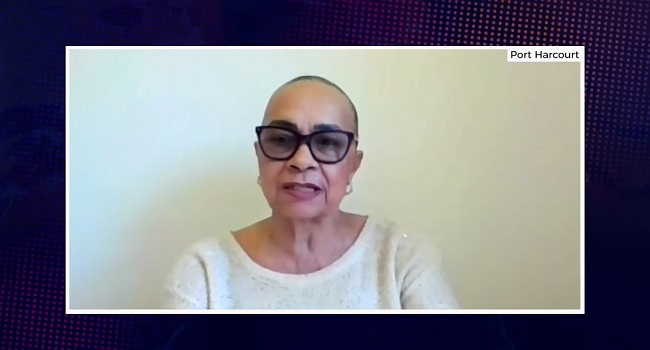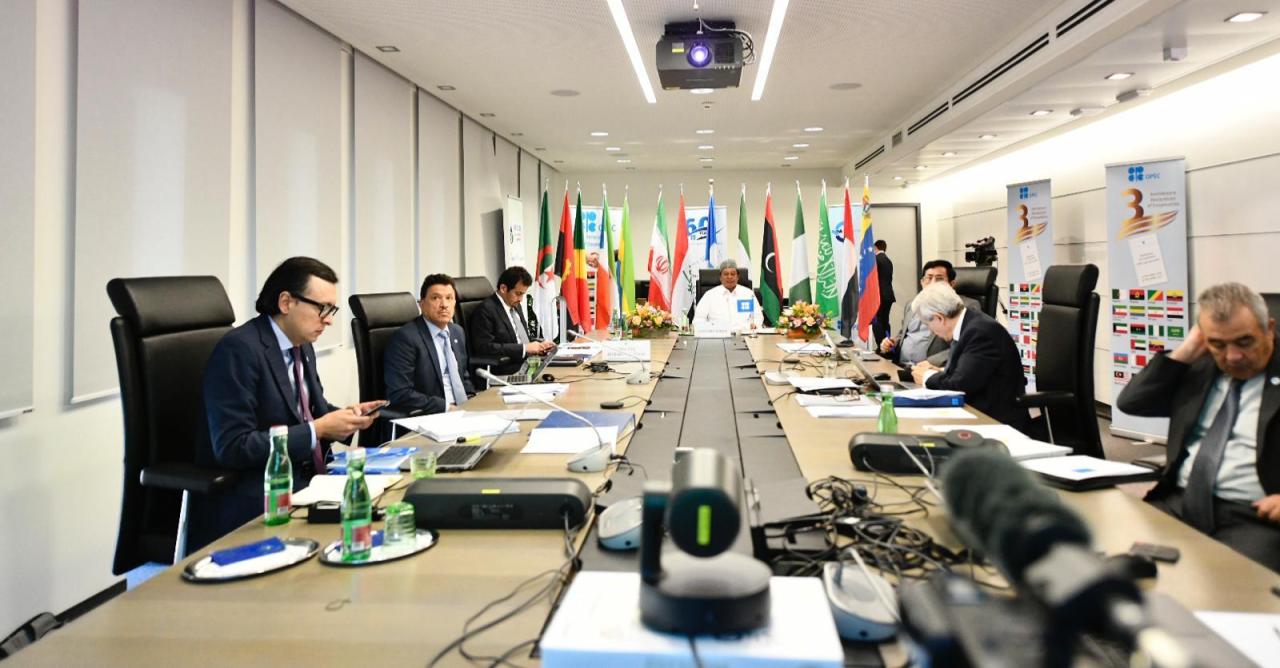Oil and Gas
OPEC inaugurates 2022 World Oil Outlook at ADIPEC

The Organisation of Petroleum Exporting Countries (OPEC) on Monday inaugurated its 2022 World Oil Outlook (WOO).
The WOO was inaugurated at the ongoing Abu Dhabi International Petroleum Exhibition and Conference (ADIPEC) 2022 in the United Arab Emirates (UAE).
ADIPEC is the global energy industry’s most influential meeting place which convenes ministers, energy leaders, and professionals to identify opportunities that will unlock new value in the energy landscape.
The News Agency of Nigeria (NAN) reports that the conference, which is holding from Oct. 31 to Nov. 3 has its theme as “The Future of Energy: Secure, Affordable and Sustainable”.
First published in 2007, the WOO offers a detailed review and assessment of the medium- and long-term prospects for the global oil and energy industries to 2045.
OPEC’s Secretary-General, Haitham Al Ghais, in launching the publication said the 16th edition of the flagship publication incorporated analysis of the industry’s various internal and external linkages.
He said it dwelt on shifting dynamics that had seen a renewed focus over the past year of the interplay between energy affordability, energy security, and the need to reduce emissions.
“It provides insights into energy and oil demand, oil supply and refining, the global economy, policy and technology developments, demographic trends, environmental issues and sustainable development concerns,” he said.
He said the WOO 2022 again underscored the increasingly complex nature of the global oil and energy industries.
“Is a great honour to return to ADIPEC to launch this year’s WOO, an event that continues to go from strength-to strength. This is tribute to the leadership in the UAE.
“Highlights from 2022 WOO include that ‘The world economy is expected to be more than double in size, and the global population rise by 1.6 billion between now and 2045,” he said.
Based on the outlook, he said global primary energy demand was forecast to continue growing in the medium- and long-term, increasing by a significant 23 per cent in the period to 2045.
“The world needs to annually add on average 2.7 million barrels of oil equivalent a day to 2045, while all forms of energy will be needed to address future energy needs.
“Oil is expected to retain the largest share in the energy mix throughout the outlook period, accounting for almost a 29 per cent share in 2045.
“Other Renewables – combining mainly solar, wind and geothermal energy – expand by 7.1 per cent p.a. on average, significantly faster than any other source of energy.
“All major fuel types witness growth, with the exception of coal.
“Globally, oil demand is projected to increase from almost 97 million barrels a day (mb/d) in 2021 to around 110 mb/d in 2045,” he revealed.
He said the outlook indicated that India was set to be the largest contributor to incremental demand, adding around 6.3 mb/d to 2045.
He said Global refining capacity additions were projected at 15.5 mb/d between 2022 and 2045 while the global oil sector would need a cumulative investment of $12.1 trillion in the upstream, midstream and downstream through to 2045, equating to over $500 billion each year.
“Recent annual investment levels have been significantly below this, due to industry downturns, the pandemic, and the increasing focus on environmental, social, and governance (ESG) issues,” he said.
(NAN)
OPEC inaugurates 2022 World Oil Outlook at ADIPEC
Africa
Customs hands over illicit drugs worth N117.59m to NDLEA

The Nigeria Customs Service (NCS), Ogun Area 1 Command, has handed over illicit drugs worth N117.59 million to the National Drug Law Enforcement Agency (NDLEA).
The Comptroller of the command, Mr James Ojo, disclosed this during the handing over of the drugs to Mr Olusegun Adeyeye, the Commander of NDLEA, Idiroko Special Area Command, in Abeokuta, Ogun, on Friday.
Ojo said the customs handed over the seized cannabis and tramadol tablets to the Idiroko Special Command for further investigation in line with the standard operating procedures and inter-agency collaboration.
He said the illicit drugs were seized in various strategic locations between January and November 21, 2024, in Ogun State.
He added that the illicit drugs were abandoned at various locations, including the Abeokuta axis, the Agbawo/Igankoto area of Yewa North Local Government Area, and Imeko Afton axis.
Ojo said that the seizure of the cannabis sativa and tramaling tablets, another brand of tramadol, was made possible through credible intelligence and strategic operations of the customs personnel.
“The successful interception of these dangerous substances would not have been possible without the robust collaboration and support from our intelligence units, local informants and sister agencies.
“These landmark operations are testament to the unwavering dedication of the NCS to safeguard the health and well-being of our citizens and uphold the rule of law,” he said.
He said the seizures comprised 403 sacks and 6,504 parcels, weighing 7,217.7 kg and 362 packs of tramaling tablets of 225mg each, with a total Duty Paid Value of N117,587,405,00.
He described the height of illicit drugs smuggling in the recent time as worrisome.
This, he said, underscores the severity of drug trafficking within the borders.
“Between Oct. 13 and Nov. 12 alone, operatives intercepted a total of 1,373 parcels of cannabis sativa, weighing 1,337kg and 362 packs of tramaling tablets of 225mg each,” he said.
Ojo said the seizures had disrupted the supply chain of illicit drugs, thereby mitigating the risks those substances posed to the youth, families and communities.
He lauded the synergy between its command, security agencies and other stakeholders that led to the remarkable achievements.
Ojo also commended the Comptroller General of NCS for creating an enabling environment for the command to achieve the success.
Responding, Adeyeye, applauded the customs for achieving the feat.
Adeyeye pledged to continue to collaborate with the customs to fight against illicit trade and drug trafficking in the state.
Economy
Customs intercepts N30m worth of PMS in Operation Whirlwind

The Nigerian Customs Service (NCS) on Friday said that it had intercepted 849 kegs of Premium Motor Spirit (PMS), worth over N30 million in retail price from Operation Whirlwind.
The Comptroller of Customs, Hussein Ejibunu, made this known during a news conference in Ikeja.
“Today, we have another seizure of 849 kegs of PMS containing 25 litres each. This translates to 30,225 litres with duty paid value at N30.225 million only at the NNPCL retail price.
“Today marks yet another success recorded by the operatives of Operation Whirlwind, Zone “A” Lagos/Ogun Axis.
“About five weeks ago, same PMS products were displayed before you here on the parade ground of the college where several seizures were made,” Ejibunu said.
“On this note, we wish to thank the National Security Adviser and the Comptroller-General of Customs for their unwavering support,” Ejibunu said.
The coordinator of the Operation Whirlwind said that two vehicles of means of conveyance were intercepted along with the seizures.
Ejibunu said that they evacuated 80 Jerry Cans each from a vehicle.
He assured the public that Operation Whirlwind remains steadfast in its efforts to clamp down on PMS smugglers, ensuring no room for their illegal activities nationwide.
Africa
Ann-Kio Briggs Faults Tinubu for Scrapping Niger Delta Ministry

Prominent Niger Delta human rights activist and environmentalist, Ann-Kio Briggs, has criticised President Bola Tinubu’s decision to scrap the Ministry of Niger Delta, describing it as ill-advised and detrimental to the oil-rich region.
Briggs expressed her concerns during an appearance on Inside Sources with Laolu Akande, a socio-political programme aired on Channels Television.
“The Ministry of Niger Delta was created by the late (President Umaru) Yar’Adua. There was a reason for the creation. So, just removing it because the president was advised. I want to believe that he was advised because if he did it by himself, that would be terribly wrong,” she stated.
President Tinubu, in October, dissolved the Ministry of Niger Delta and replaced it with the Ministry of Regional Development, which is tasked with overseeing all regional development commissions, including the Niger Delta Development Commission (NDDC), North-West Development Commission, and North-East Development Commission.
Briggs questioned the rationale behind the restructuring, expressing concerns about its feasibility and implications. “But that’s not going to be the solution because who is going to fund the commissions? Is it the regions because it is called the Regional Development Ministry? Is it the states in the regions? What are the regions because we don’t work with regions right now; we are working with geopolitical zones,” she remarked.
She added, “Are we going back to regionalism? If we are, we have to discuss it. The president can’t decide on his own to restructure Nigeria. If we are restructuring Nigeria, the president alone can’t restructure Nigeria, he has to take my opinion and your opinion into consideration.”
Briggs also decried the longstanding neglect of the Niger Delta despite its significant contributions to Nigeria’s economy since 1958. “The Niger Delta has been developing Nigeria since 1958. We want to use our resources to develop our region; let regions use their resources to develop themselves,” she asserted.
Reflecting on the various bodies established to address the region’s development, Briggs lamented their failure to deliver meaningful progress. She highlighted the Niger Delta Basin Authority, the Oil Mineral Producing Areas Development Commission (OMPADEC), and the NDDC as examples of ineffective interventions.
“NDDC was created by Olusegun Obasanjo…There was OMPADEC before NDDC. OMPADEC was an agency. Before OMPADEC, there was the Basin Authority…These authorities were created to help us. Were we helped by those authorities? No, we were not,” she said.
Briggs further described the NDDC as an “ATM for failed politicians, disgruntled politicians, and politicians that have had their electoral wins taken away from them and given to somebody else.”
Her remarks underscore the deep-seated frustrations in the Niger Delta, where residents continue to advocate for greater control over their resources and improved governance.
-

 Headlines4 years ago
Headlines4 years agoFacebook, Instagram Temporarily Allow Posts on Ukraine War Calling for Violence Against Invading Russians or Putin’s Death
-

 Headlines4 years ago
Headlines4 years agoNigeria, Other West African Countries Facing Worst Food Crisis in 10 Years, Aid Groups Say
-

 Foreign4 years ago
Foreign4 years agoNew York Consulate installs machines for 10-year passport
-

 News1 year ago
News1 year agoZero Trust Architecture in a Remote World: Securing the New Normal
-

 Entertainment3 years ago
Entertainment3 years agoPhyna emerges winner of Big Brother Naija Season 7
-

 Headlines2 years ago
Headlines2 years agoNigeria Customs modernisation project to check extortion of traders
-

 Entertainment2 years ago
Entertainment2 years agoMovie download platform, Netnaija, announces closure
-

 Economy2 years ago
Economy2 years agoWe generated N30.2 bn revenue in three months – Kano NCS Comptroller












